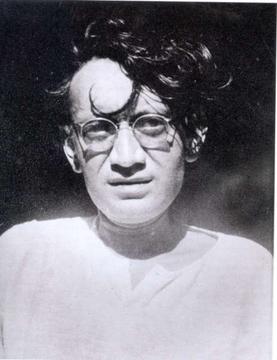
Imam Ahmed Raza Khan Barelvi was a great scholar and reformer. Born in1856 he founded Barelwi movement. He was a mufassir, jurist, theologian, Sufi, poet, and author who wrote on a variety of subjects. His followers are found in large number across Subcontinent n beyond
#Thread
#Thread

Ahmed Raza Khan mainly wrote against what he called wahabism and the deobandis who he claimed were damaging the religion. Besides he also wrote extensively on the life of the Prophet Muhammad (SAW) and Sufism. 

Khan took on Wahabism and Deobandi sects and helped shape a movement by his writings which is known as Ahle Sunnat wal Jamaat or Barelwi Movement (Barelvi).Some Barelwi leaders claim that his fan followers number around 200 million in the Subcontinent.
This may be a little exaggeration but his Barelwis make large proportion of the South Asian Muslims and the Diaspora around the world. His followers according to Usha Sanyal, believed themselves to be South Asia's heirs and representatives of earliest Muslim community
It emerged as part of religious debate among Islamic scholars as to how Muslim identity and action should be used to redeem India. Sanyal says in ‘Devotional Islam’ that by 1890, Barelwis used to hold munazras with scholars of Deobandis and Wahabis. Munara's format was clear
They would argue in favour of Prophet Muhammad (SAW) having the knowledge of seen and unseen. They also held munazirs with ahle hadith on the issue of Taqlid. They didn’t confine these discussions with Muslim sects but also held munaziras with Arya Samajis.
Maulana Ahmad Raza Khan was not very interested himself in debates and munazras. He did it through his writings. However, there were many of his followers who made name for themselves in publicly challenging their opponents and holding fiery debates.
Topmost among them were Maulana Naimuddin Muradabadi n Maulana Hashmat Ali. Efforts of Ahmad Raza Khan Barelwi and his scholars to establish a movement to counter hard line anti-Sufi Deobandi, Ahl-i Hadith, resulted to in the institutionalization of diverse Sufi movements
Imam Ahmad Raza Khan saw an intellectual and moral decline of Muslims in British India. Over a period of time his movement was a mass movement, defending popular Sufism, which grew in response to influence of the Deobandi movement in South Asia and the Wahhabi movement elsewhere. 

Unlike common perception, difference between Deobandis n Barelwis are whimsical and they don’t differ on fundamental issues as is the case between Shias and Sunnis. He supported Tawassul, Mawlid, the prophet Muhammad's awareness of complete knowledge of the unseen, etc
Ahmad Raza Khan said that Prophet Muhammad, despite being the perfect human possessed a nūr that predates creation. This contrasts with the Deobandi view that Muhammad, was only a insan-e-kamil, a respected but physically typical human just like other humans.
Barlewis also believe that Prophet (SAW) is haazir naazir which means that prophet views and witnesses actions of his people. His important books include Kanzul Iman (translation of the Qur'an), Husamul Haramain, Fatawa-e-Razvia or Al Ataya fi-Nabaviah Fatwa Razaviah,
Al Daulatul Makkiya Bil Madatul Ghaibiya, Al Mu'tamadul Mustanad, Al Amn o wal Ula, Alkaukabatush Shahabiya, Al Fuyoozul Makkiyah, Al Meeladun Nabawiyyah,
• • •
Missing some Tweet in this thread? You can try to
force a refresh












